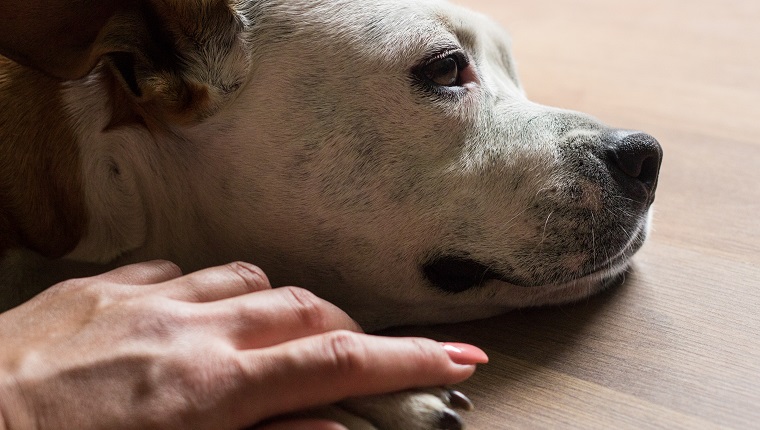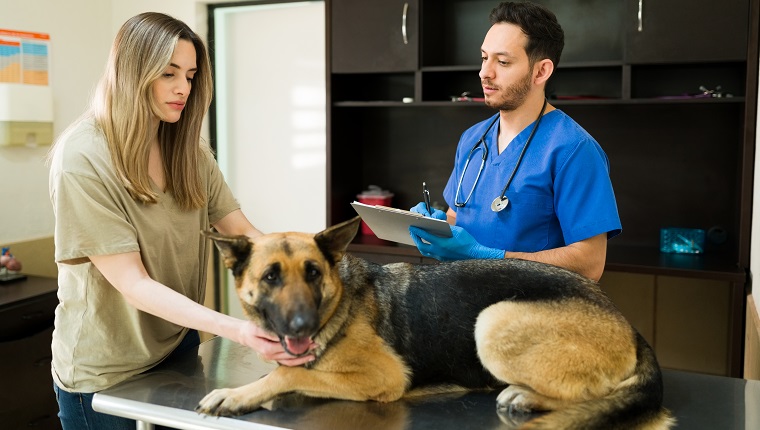Astrocytoma in dogs is a type of brain tumor that affects cells called glial cells. These glial cells are found around the nerve cells and help to support them.
These types of tumors usually affect older canines rather than younger pups. It also appears more often in certain short-nosed breeds of dog.
If you see signs that your dog might be developing a brain tumor, then you must consult your veterinarian for a proper diagnosis and course of treatment. Here’s what you should know about the symptoms, causes, and treatments of astrocytoma in dogs.
Symptoms Of Astrocytoma In Dogs
Astrocytoma in dogs can result in a number of symptoms. Some of the most common symptoms include:
- Anorexia
- Circling
- Losing their appetite
- Paralysis
- Seizures
- Turning blind
- Acting disoriented
Causes Of Astrocytoma In Dogs

Astrocytoma in dogs is an idiopathic medical condition, meaning the cause is currently unknown.
Some of the factors that have been suggested in studies as causes or contributors to the condition include:
- Trauma
- Genetic issues
- Exposure to pesticides
- Exposure to radiation
Veterinary Treatments
If you worry that your dog is developing astrocytoma, then your veterinarian will ask a detailed series of questions about their symptoms and their medical history. This will include questions about any recent events that might have potentially contributed to the development of a brain tumor.
The vet will then carry out a full physical examination of your dog, including blood and urine tests. They may also use a CT scan or an MRI can to confirm a diagnosis.
When it comes to treatment, vets often suggest chemotherapy and surgery as options to try. Unfortunately, the prognosis for dogs diagnosed with this condition is generally poor; although, you may expect more hopeful results if a vet diagnoses the condition early.
Has your dog developed astrocytoma? What treatment did your vet suggest? Tell us all about it in the comments below.









